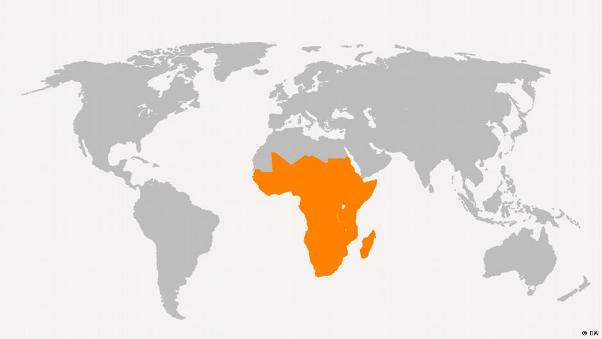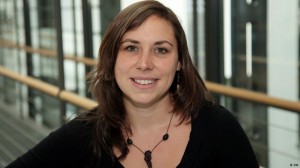Search Results for Tag: Ghana
How to unlock the full potential of online video even on low-quality networks
There is a high demand for quality media in Africa but in many places network infrastructure cannot keep up. A positive aspect of this technological disparity is that it promotes the development of alternative services, which provide access to media by getting around network deficiencies. Launched in January 2012, Tuluntulu (which means stream in Zulu) opens the floodgates to a reservoir of uninterrupted television streams on mobile devices– even in locations with low-bandwidth networks.
Now DW’s flagship English channel will be included Tuluntulu catalogue. This new partnership will bring world-class programming and information to a hard-to-reach audience. With partners on board like DW, no one has to miss out on quality content because of technological deficiencies.
Tuluntulu works by using Adaptive Real-time Internet Streaming Technology (ARTIST), which allows content to stream at low data consumption levels. The service was developed specifically as a platform for the technology. The company claims that ARTIST technology can provide unbroken streaming video at the low broadband speed of 30kbps adding that no other service can provide video under 100 kbps. With its wide-selection of networks, Tuluntulu is truly a breakthrough for mobile media in Africa. The service is free to download right now for iOS or Android devices.
This is only the beginning of developing these technologies and DW is an integtral part of what makes them so important in providing information to those who need it in a place they couldn’t find it before.
Let’s get high-quality information to low-tech devices in Africa
Annelie Moreira Da Silva, DW Distribution Representative for Africa
Smartphones are fast becoming the standard tool for consuming news and information, but for many people in developing and emerging countries, this technology is still out of reach. It is estimated that out of the total 5 billion mobile users worldwide, only 1 billion are using smartphones. The remaining number represents a majority of people in emerging and developing countries who are using 2G or “feature phones” for mobile Internet access.
DW works hard to provide top-quality news and information to people in hard to reach places. In emerging markets such as in Africa, expensive Internet and mobile technology makes smartphones a luxury that few can afford. Most people try to use their feature phones to access valuable social networks and online news which usually demands a higher level of data processing than these devices can provide – but there are some solutions.
A innovative platform called biNu is providing a way for feature phones to efficiently navigate the web. And since June, DW has been cooperating with biNu to provide feature phone users in Africa with easy access to DW’s high-quality online news content.
The biNu app provides high-end functionality by turning feature phones with a basic Internet connection into “virtual smartphones.” It achieves this by using cloud networks to process and compress data from websites allowing the end result to be easily used via a feature phone. The result of using a cloud platform to streamline data is a service that is 10 times faster than a standard mobile browser while requiring 10 times less bandwidth. The displays are simplified and optimized for a feature phone and the most important elements of the website are passed on to the user.
The service already has more than 900,000 users in Africa, mostly located in fast-growing media markets like Nigeria, Kenya, South Africa and Ghana but also in countries like Zimbabwe and Ethiopia where, because of the difficult political climate, are harder for international media to access.
Even as infrastructure improves, the low cost of feature phones and continually expensive network and Internet access means that many people in these developing countries will continue to use their mobile phones as the primary device for going online. Providing them with easily accessible news, information and social networks is a hugely important task. Through cooperating with biNu, DW can overcome the disparity in international technological standards and provide information that people need on the device that they prefer.
Award for DW journalist Philipp Bilsky
DW report Philipp Bilsky has been recognized as part of the Next Generation of Science Journalists for a segment showed on Future Now. Bilsky looked at a team of German scientists working with Ghanaian colleagues deep in the African jungle to try and reduce the risks that bats pose to humans’ health.
To help recognize emerging Science Journalists, Germany’s most read medical journal Deutsches Ärzteblatt, the World Federation of Science Journalists (WFSJ), and the World Health Summit designed the Next Generation of Science Journalists competition.
Future Now is a DW series that presents 20 projects and the researchers who are looking for solutions to burning questions about the future.
DW and the Women’s World Cup
Nigeria’s Super Falcons
The FIFA Women’s World Cup is in full gear in Germany – and a special project from DW-AKADEMIE is helping to provide more coverage to the feminine side of soccer. DW-AKADEMIE invited eight TV journalists – from Bhutan, Egypt, Palestine, Ghana, Nigeria, Colombia, Brazil and Mexico to take part in a workshop in Berlin. The results from “Reporting the Women’s World Cup 2011” have already been broadcast on ZDF (in German) and Phoenix and are now also available on the DFB website. The team also includes trainees in media design (audio and video) and will produce a total of 20 stories surrounding the Women’s World Cup.
Find out more about DW-AKADEMIE or check out DW’s coverage of the Women’s World Cup.










Feedback